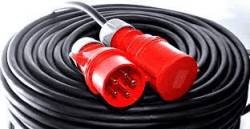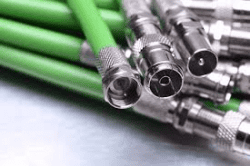The electrical industry requires the use of high-quality industrial rubber products to ensure safety and productivity. There are various applications of these products in the electrical industry. One such example is the silicon cover. These covers are used as the main components of electrical safety mechanisms, such as circuit breakers. Other uses for these parts include transformers, enclosures, flame-proof equipment, and push button switches. Apart from this, they provide optimum resistance to water.
Conductive rubber has several applications in the electrical industry, including as EMI/RFI noise reduction. Several types of rubberized materials are used for this purpose.
Another example of an electrical device is the Energy-Generating Rubber sensor. These sensors detect any movement that causes slight pressure and produce electricity. These sensors are commonly found in trains and airplanes, and can also detect trouble in homes. Other types of electric materials are used to generate electricity when they experience mechanical strain. These materials are ceramics and polymers, and they do have some limitations. Fortunately, some advanced technologies have gotten around these shortcomings.
Flexible polymers are a good choice for these applications. In addition to their excellent insulating properties, they are able to withstand high temperatures, which makes them a suitable material for cable accessories. Further, they have excellent thermal resistance and hydrophobic properties, making them ideal insulating material. However, there are some important considerations when choosing a rubber for electrical applications. They must be tested thoroughly and are compatible with all electrical equipment. For UK Rubber Moulding for your products, go to Meadex, a UK Rubber Moulding company.
Traditionally, rubber has been used for cable sheathing and insulation. However, synthetic rubbers have gradually taken their place. The main property of rubber is thermoset, which means that it does not soften when exposed to heat. It also has the advantage of being able to change its properties with the addition of various additives. Typical rubber cable compounds are silicone, natural rubber, chloroprene, fluorocarbon, and polychloroprene.
Silicone rubber has excellent electrical insulation properties and is resistant to moderate pollution. Moreover, it is highly flexible and can be molded or extruded easily. Silicone is increasingly popular in the electrical industry, where it is used as a barrier to electromagnetic fields. Its unique surface characteristics have made it an attractive solution for electrical devices and equipment. Silicone is also used in the electrical industry for insulator maintenance and it can reduce surface leakage currents and flashover.
Liquid silicone rubber is versatile and convenient, making it one of the most attractive material options for the electrical industry. It can be moulded without excessive energy, making the manufacturing process simpler and more affordable.


